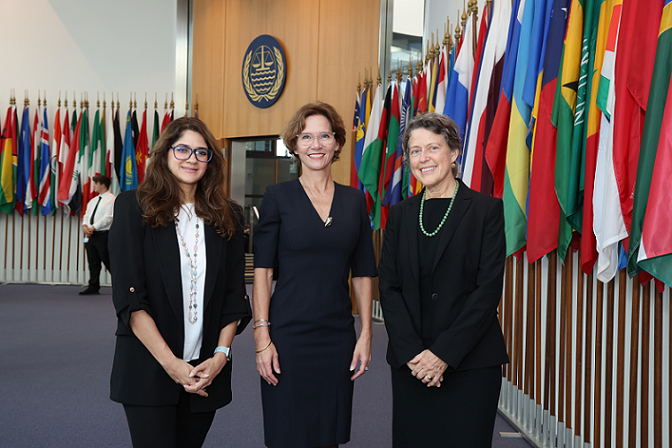ITLOS (International Tribunal on the Law for the Sea)
In 2023 WCEL delivered IUCN's written and oral statements before the International Tribunal on the Law for the Sea (ITLOS) on case 31: "Request for an Advisory Opinion submitted by the Commission of Small Island States (COSIS) on Climate Change and International Law", for which WCEL Chair, Christina Voigt, was the Lead Legal counsel.
The question submitted to the Tribunal was the following:
What are the specific obligations of State Parties to the United Nations Convention on the Law of the Sea (the "UNCLOS"), including under Part XII:
(a) to prevent, reduce and control pollution of the marine environment in relation to the deleterious effects that result or are likely to result from climate change, including through ocean warming and sea level rise, and ocean acidification, which are caused by anthropogenic greenhouse gas emissions into the atmosphere?
(b) to protect and preserve the marine environment in relation to climate change impacts, including ocean warming and sea level rise, and ocean acidification?
On June 14th, WCEL's team led by Cymie Payne (Chair of the WCEL Ocean Law Specialist Group) submitted IUCN's written statements to ITLOS on case 31: "Request for an Advisory Opinion submitted by the Commission of Small Island States on Climate Change and International Law". Besides Dr Payne and Dr Voigt, the team for this submission included Dr Tara Davenport, Baastian Klerk, Lisa Benjamin, Robin Churchill and A.H.A. Soons, Anne-Marie Hubert, Robin Churchill- and other scientific reviewers.
To read IUCN's complete written submission to ITLOS case 31:
On 21st September, WCEL delivered IUCN's oral statements before ITLOS in Hamburg. WCEL Chair Chirstina Voigt opened the oral pleadings on behalf of IUCN.
During the oral statements Dr Payne provided examples of 'obligations of conduct' and 'obligations of result', raised the need for the precautionary approach and cited examples from customary international law and international jurisprudence.
Dr Davenport laid out the necessity to consider external international agreements in the context of interpreting UNCLOS Part XII obligations in particular the UNFCCC and the Paris Agreement.
Dr Voigt took the floor last to explain how the climate change regime can inform but does not limit state obligations relevant to UNCLOS. Additionally, she reminded that the Paris Agreement (with its high numbers of parties) constitutes the most recent international scientific, political and legal consensus on climate change action.
You can watch IUCN's (and other) oral statements to ITLOS on case No 31 here:
https://itlos.org/en/main/cases/webcast/webcast-archives-case-no-31/

